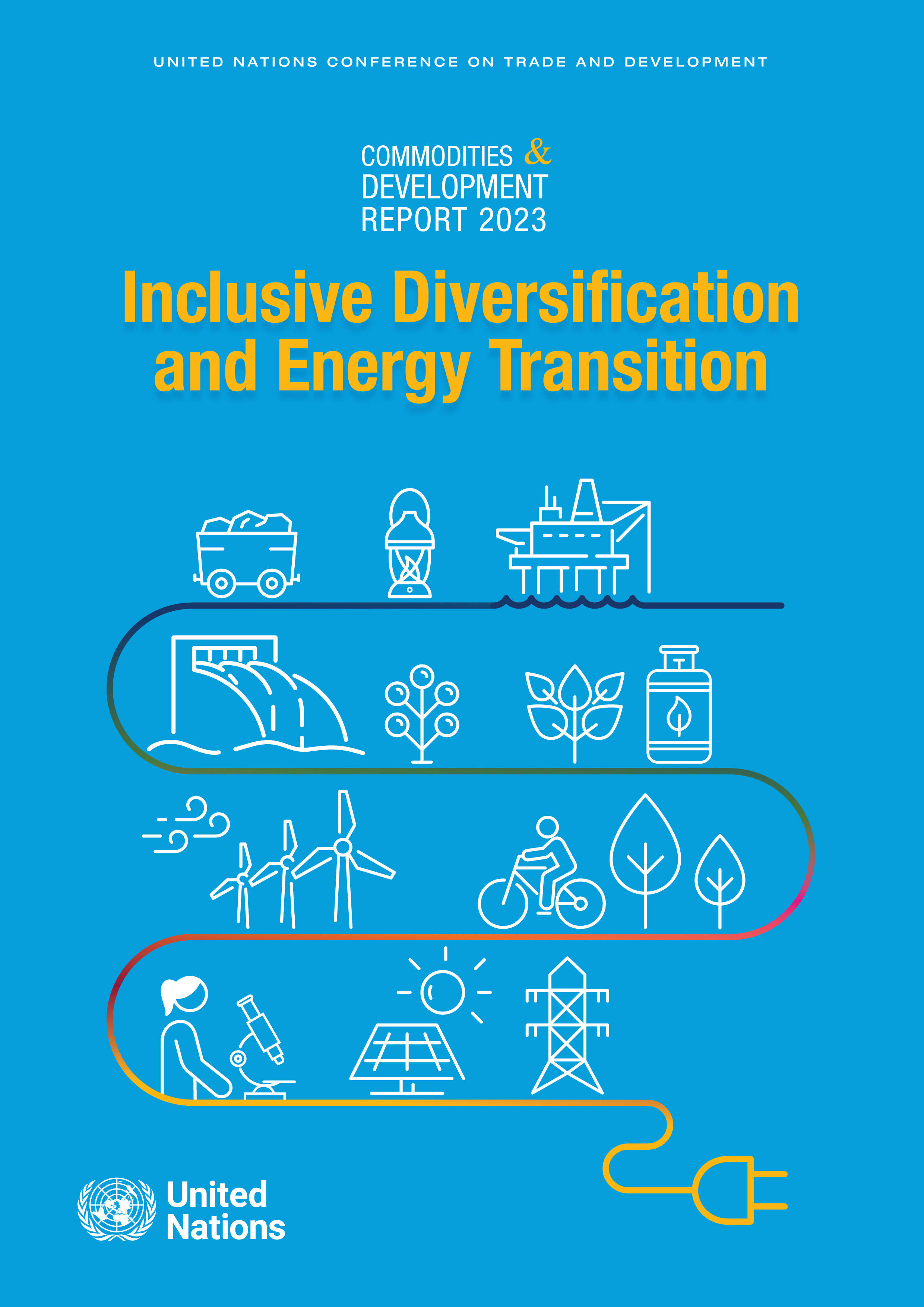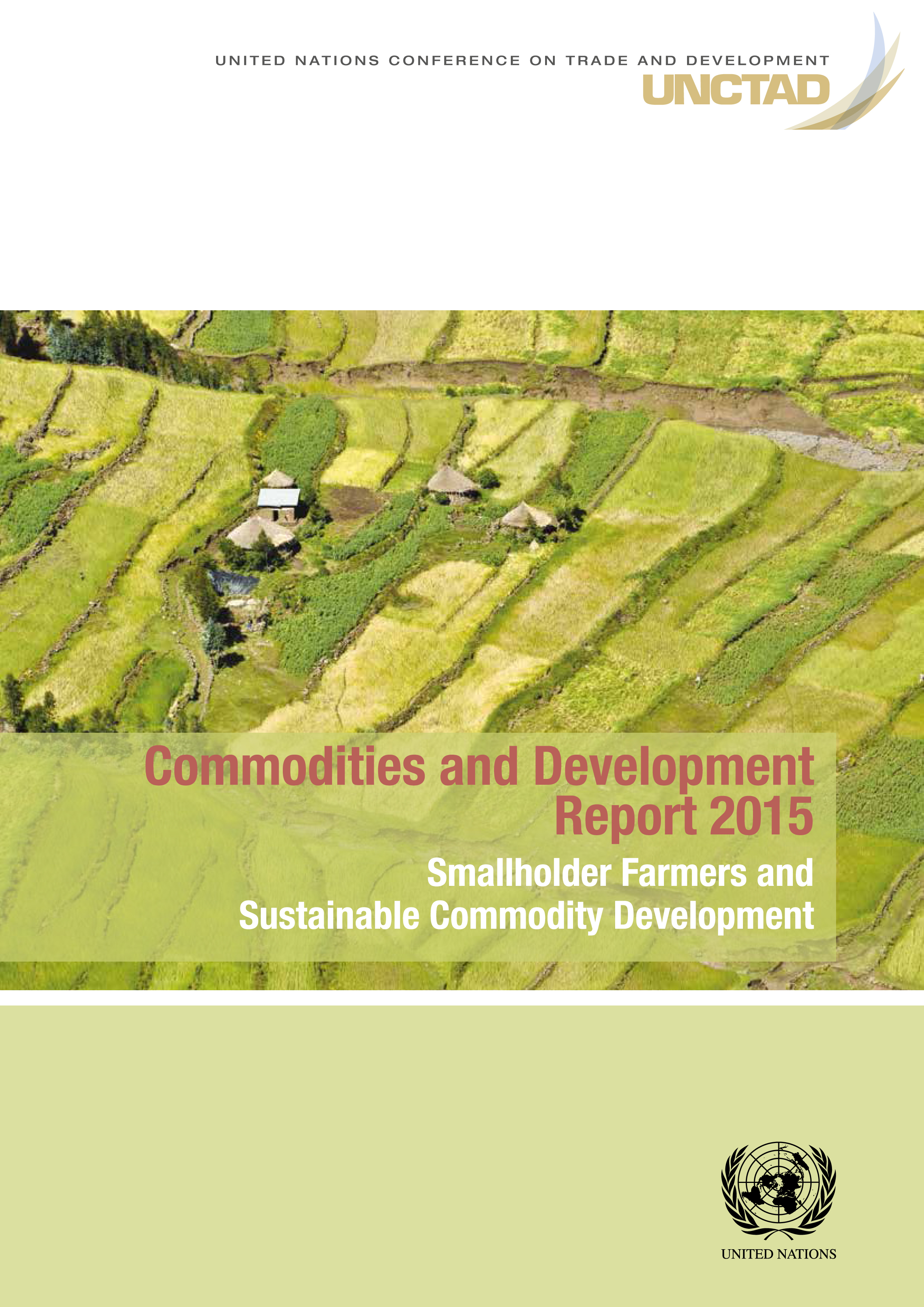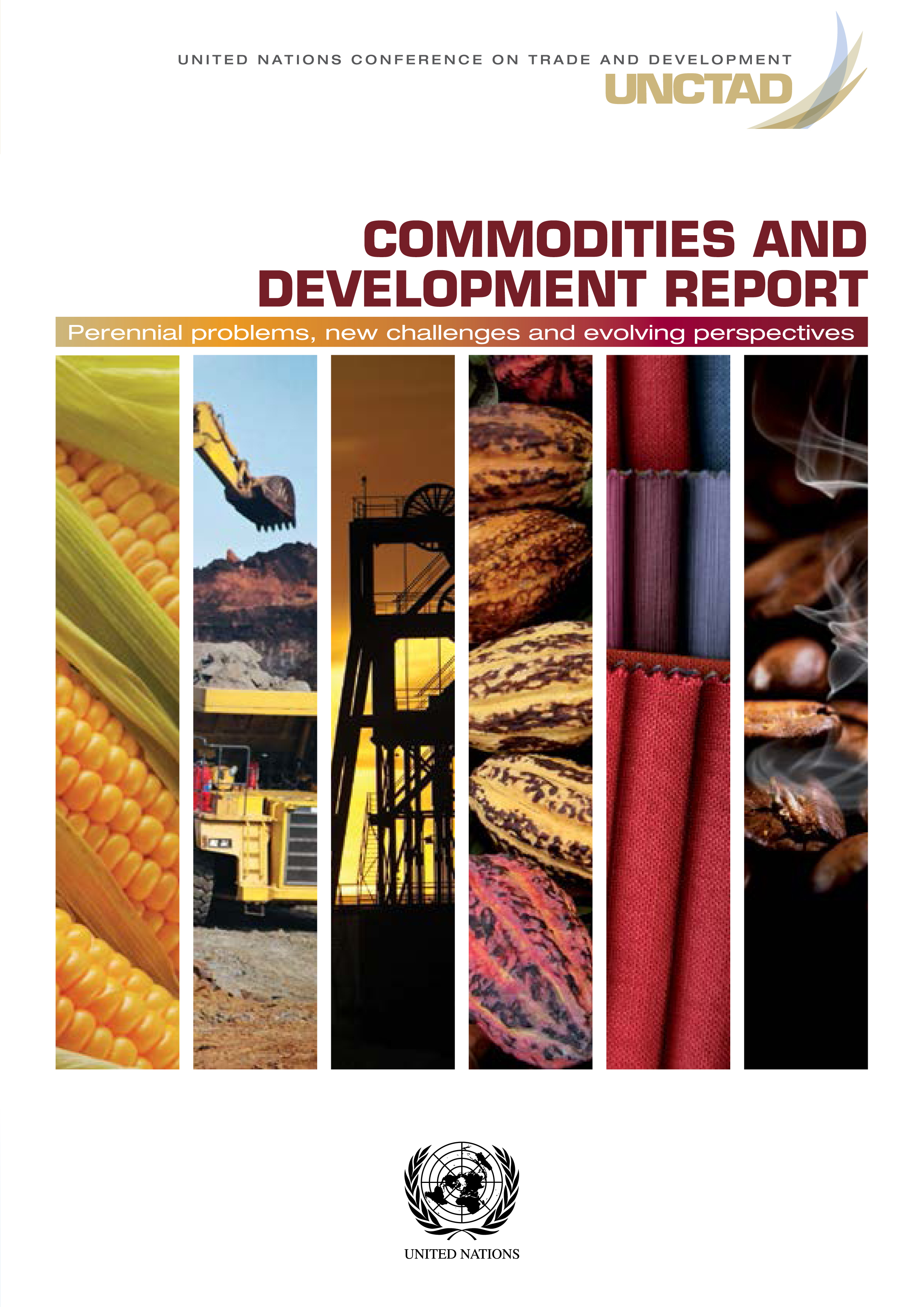Commodities and Development Report
The UNCTAD Commodities and Development Report series provides in-depth analysis of topics of particular interest to commodity dependent developing countries and presents proposals. It sheds light on different issues inherent to the subject. They are intended to support development practitioners, civil society and government partners in their work. These report will also be useful for civil society, researchers and various policymakers.
Filter :
Sustainable Development Goals
Subject
Publication date

Commodities and Development Report 2023
Inclusive Diversification and Energy Transition
This report highlights pathways to economic diversification in commodity-dependent developing countries in an environment where decarbonization of the global economy has become the overarching objective of climate change mitigation. The report argues that inclusive and green diversification is possible if the right to development of commodity-dependent developing countries, the need to address climate change, and existing inequalities are addressed in a common and balanced way. In this regard, green industrial policy can help to promote inclusive structural transformation in commodity-dependent developing countries. Furthermore, strong political commitment both in commodity-dependent developing countries and their development partners is needed to achieve just diversification pathways.

Commodities and Development Report 2021
Escaping From the Commodity Dependence Trap Through Technology and Innovation
Commodity dependence is a trap: once a country is commodity dependent, it is difficult to develop a productive sector out of commodities and export non-commodity products. This publication argues that without strong action at the highest political level in Commodity-dependent Developing Countries (CDDCs), these countries will remain trapped for centuries. It demonstrates how technology and innovation could lead the way to economic and structural transformation in CDDCs, helping to diversify economies and lessen dependence on the commodity sector and, in turn, strengthen productivity growth. Enabling CDDCs to escape from the commodity dependence trap requires stronger cooperation between CDDCs and their trading and development partners with regard to technological acquisition and domestication. Indeed, a conducive framework for technology accessibility and its transfer to CDDCs is ultimately needed at the international level.

Commodities and Development Report 2019
Commodity Dependence, Climate Change and the Paris Agreement
This report explores key aspects of the two-way relationship between commodities and climate change, discusses the concept of natural resource conversion and explores its application to renewable and non-renewable resources. In addition, it analyses the challenges and opportunities posed by climate change and the Paris Agreement to commodity-dependent developing countries, and discusses commodity-sector strategies in a changing climate. The report concludes with policy recommendations.

Commodities and Development Report 2017
Commodity Markets, Economic Growth and Development
The 2017 Commodities and Development Report investigates the transmission channels through which commodity dependence affects micro- and macro-level development outcomes, examines long-term commodity price trends and simulates their impacts on economic agents, and highlights challenges and lessons from ten commodity-dependent developing country case studies. The report concludes that country-level strategies aimed at the achievement of the Sustainable Development Goals (SDGs) must address commodity dependence in order to be successful.

Commodities and Development Report 2015
Smallholder Farmers and Sustainable Commodity Development
Smallholder farmers constitute the largest contingent of the poor and yet they produce more than 80 per cent of the world's food, in value terms. Though there are marked differences by country and region in the average size of small farms, it is estimated that more than 90 per cent of the 570 million farms worldwide are managed by an individual or a family, and that mostly they rely on family labour. Estimates further show that about 2.5 billion people depend on agricultural production systems for their livelihoods. The report highlights the range of constraints that smallholder farmers face in developing economies and specifically provides new analyses of the state of their integration into the global economy. It underlines that smallholder farmers are both victims of climate change and key actors in the achievement of a more inclusive and environmentally friendly development path. The report argues for specific measures at the national, regional and global levels, including in international trade and investment agreements, for unleashing the full business potential of smallholders. It showcases good policy practices, including the role of strong political leadership in reversing the policy neglect that small farmers have suffered from. "Business as usual" is not an option if the 2030 Agenda for Sustainable Development is to be achieved. In light of this, the report calls for greater resources to be devoted to supporting smallholders. Finally, the report also urges for the establishment of an accountability mechanism for monitoring progress on key commitments related to smallholders on trade, investment, finance and technology.

Commodities and Development Report 2012
Perennial Problems, New Challenges and Evolving Perspectives
The Commodities and Development Report 2012, released during the 13th session of UNCTAD, shows that developing countries suffer from high prices for commodities and food, in particular Least Developed Countries (LDCs) that are net importers of food. The report states that factors such as financial speculation in commodities and increasing diversion of agricultural land to biofuel crops have led to a period of sustained increases in commodity prices and increased price volatility, which in turn have increased the vulnerability of poor families in developing countries. The report recommends: investing in national and regional food reserves to help food-insecure countries; reconsidering the shift to "finance-driven globalization," as it applies to commodities; adjusting fiscal and taxation policies to help developing countries reap stable, long-term economic benefits from commodities exports; and measures to improve the situations of small farmers and other small commodity producers in poor countries.
